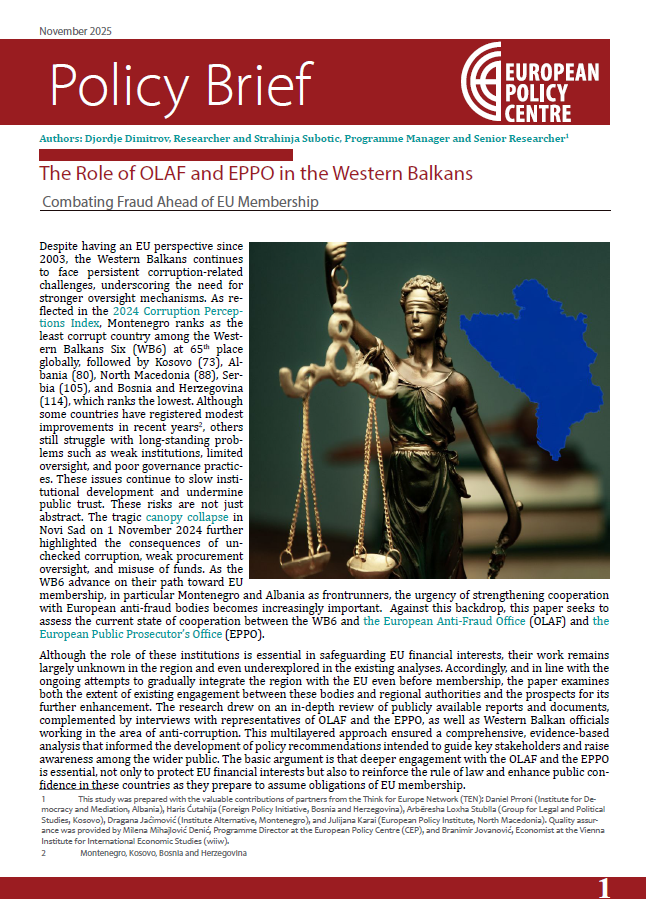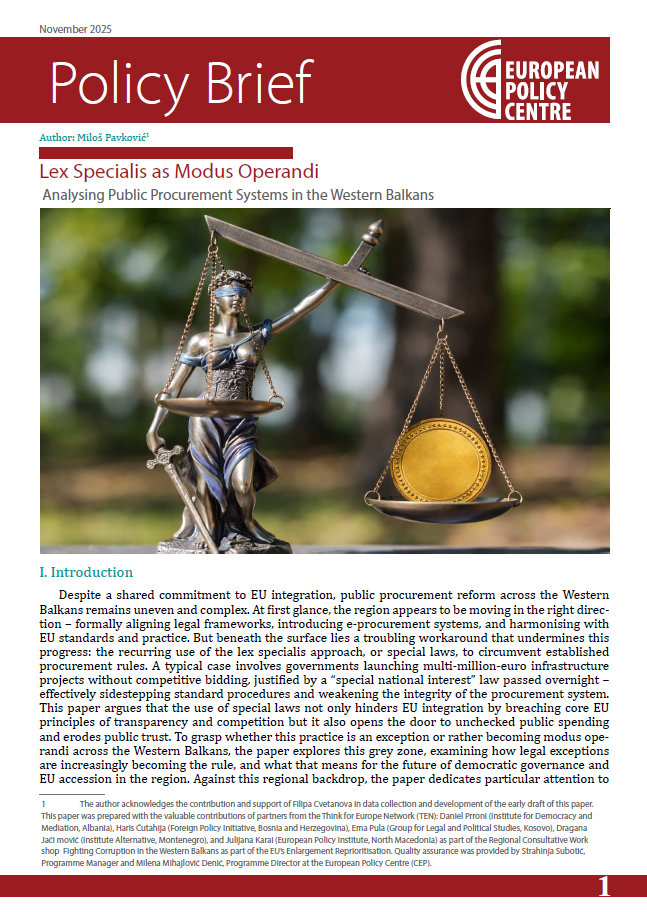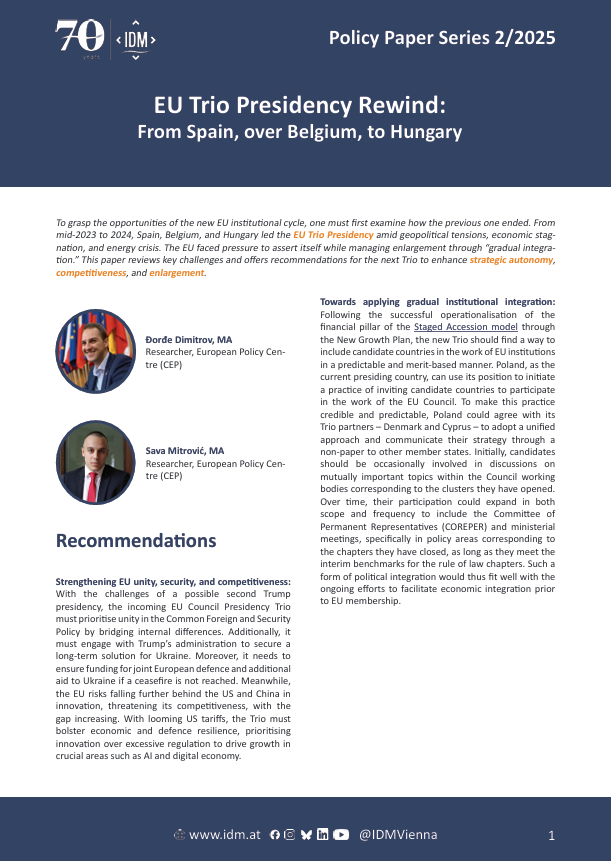Headquarters: Svetog Nauma 7, 11000
Office address: Đorđa Vajferta 13, 11000
Phone:: +381 11 4529 323
This research paper intends to analyse the future of freedom of movement for workers within the EU, particularly in the context of further enlargement and potential reforms. It seeks to provide a detailed, evidence-based assessment of how the Dutch proposal to extend limitations on worker freedom for new member states is perceived by key Western Balkan (WB) countries (considering their significant emigration challenges), while assessing the impact of the restrictions on the future EU member states.
The Republic of Serbia was selected as the primary case study due to its size, significance, and the potential impact of its labor mobility on the EU. Additionally, a comparative approach by examining Montenegro, the closest to EU membership, and Bosnia and Herzegovina, known for its high labor mobility, was taken. By conducting research efforts, in-depth, context-specific data was collected through interviews with key stakeholders in Serbia, Bosnia and Herzegovina, and Montenegro.
Supported in part by a grant from Open Society Institute – Sofia Foundation (OSIS) with the support of Open Society Foundations (OSFs). Responsibility for the contents and views expressed in this publication therein lies entirely with the European Policy Centre – CEP and the Clingendael and in no way can be construed as reflecting the official position of OSIS, OSFs or any affiliated entities.



